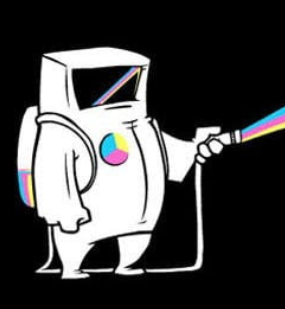- cross-posted to:
- askscience@lemmy.world
- youshouldknow@lemmy.world
- cross-posted to:
- askscience@lemmy.world
- youshouldknow@lemmy.world
The sun is not yellow or orange as we see in books and movies. It emits all the colours in the visible spectrum (also in other spectrums as well) making it white!
White is defined by the color of the sun. Since we evolved within its light we of course see the distribution of wavelengths that make it down to Earth’s surface as white. Even if the sun was always orange, we would see that as white instead.
Do you have a source for that claim? There is no way we can validate that without sending humans to another solar system. And wait thousands of years.
deleted by creator
Surely it is plausible that an organism that evolved vision under particular lighting conditions would develop vision adapated to those lighting conditions.
I’m not telling you it’s not worthwhile to come up with ways to test the claim if you want to be rigorous (e.g. you could measure the wavelength sensitivities of the vision of nocturnal or underwater animals and see if there’s a pattern). But to me it’s pretty self-evident as a starting point at least.
Why do we see it as yellow, then?
Because our atmosphere causes “scattering” of hues in the highest frequencies. This is the same reason the sky appears blue.
Could also be redshift too. I don’t know enough about it to know if we’d notice it over such a short distance and of a constant source, though. Definitely noticeable as reciprocity failure during long exposures in photography.
No, that’s not at all what redshift is.
And neither redshift nor dopplershift would have that much effect on light at the speeds we’re talking about.
Besides the sun’s color on earth it’s not a shift of wavelengths, it’s a subtraction of wavelengths, as you easily can see in a spectrogram.
Do we experience Doppler shift with our own sun? I would assume as we are in a stable orbit we wouldnt
Strictly speaking since our orbit isn’t a perfect circle we do move towards and away from the sun, so there will be some level of redshift. At those speeds there’s really no chance of seeing it without specialised tools, in the same way you don’t see redshift from a car driving past you.
Blue light gets scattered more by the atmosphere. So less blue light is received directly in a straight line from the sun and more is reflected from other parts of the sky. That’s also why the sky looks blue in the day and why the evening sky looks red (if the sun is very low during the evening, the blue light can’t reach you because it scattered so much due to the very long shallow way through the atmosphere)
During the day it’s white, but it’s also overhead and blindingly bright so we don’t spend much time looking at it. As it gets closer to the horizon Rayleigh scattering begins filtering out the bluer light and the sun becomes yellow, then orange, then red. It also gets closer to our eyeline and becomes mildly safer to look at so we look at it a lot more. This in turn leads us to believe it’s always yellow
It’s yellow or orange due to the filter from our ozone/atmosphere and camera. It’s also much more interesting to depict it as yellow or orange and not a white spot in the sky. When you stare at the sun on the equator and at 12pm, it’s white, and then it will turn black because you’ll be blinded by it.
Better to have seen the sun for what it truly is, even for a moment, and be blind forever. Never seeing the birth of your child. Or your bride/groom on your wedding day. Or your peers’ celebration of your accomplishments. Because you are blind. After staring at the sun for a few seconds. All worth it. *gets up **immediately walks into door frame. Corrects himself. Walks out door like a hero.
Here is an alternative Piped link(s):
Piped is a privacy-respecting open-source alternative frontend to YouTube.
I’m open-source; check me out at GitHub.
Of course it is. If it wasn’t, everything outside would be tinted.
Well, you would be surprised how many people think it is yellow.
Are they Coldplay?
The sun actually gives out more green wavelengths iirc.
I think the point of the article is that the sun gives out all wavelengths and just because one is higher doesn’t change the fact that it emits all colours.
Mind sorta blown - such a great explanation.
Well, someday science is going to make new discoveries and prove this is all wrong. It’s like the coffee thing. Is it good for you or is it bad for you or…it’s just dirty water and we can all go about our lives. Personally, my magic cloud god tells me they put it there to give us light and warmth. And turns it off to save electricity. Which is a good habit if you ask me. Follow my imaginary Hebraic friend and save on your bills.
relevant video that came out today if you have half an hour and want to be confused
Here is an alternative Piped link(s):
relevant video that came out today
Piped is a privacy-respecting open-source alternative frontend to YouTube.
I’m open-source; check me out at GitHub.
Why are the graphs for brightness as a function of wavelength and frequency not exact opposites? I thought that wavelength and frequency for light had an exact inverse relationship.
How about this, white isn’t a real color.
White is a color. It’s all the colors.
“Light is perceived by the human visual system as white when the incoming light to the eye stimulates all three types of color sensitive cone cells in the eye in roughly equal amounts.”
Which makes it a combination of color and not a distinct wavelength of light.
I mean… how do we know anything is real?












